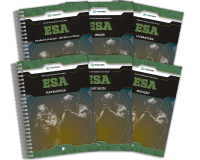- São verbos auxiliares (Formam orações negativas e interrogativas).
- São seguidos por verbos na Base Form (infInitivo sem TO).
- Possuem ideias.
CAN
CAPACITY/ABILITY (BE ABLE TO/ BE CAPABLE OF)
Usain Bolt can run very fast.
I can speak English fluently.
POSSIBILITY
It can rain tonight.
Anyone can become rich if he wins the lottery.
REQUEST
Can you give me an example, please?
Can I have a glass of water?
PERMISSION
Can I use your phone?
Can I go to the bathroom?
CAN’T/CANNOT
INCAPACITY/ LACK OF ABILITY
I can’t sing well. My voice is terrible.
Bruna can’t swim! She is afraid of water.
PROHIBITION (NOT BE ALLOWED TO)
You can’t use your phone during classes. It’s prohibited.
My brother can’t go out at night. My mother doesn’t allow it.
COULD
PAST CAPACITY/ABILITY
Bryan could eat late when he was younger. Nowadays he cannot because he gets ill every time he does that.
I could speak Spanish when I was a kid.
POSSIBILITY
It could rain tonight.
You could be the one who will enter to EEAr.
REQUEST
Could you give me a little help, please?
Could I borrow your book?
MAY
PERMISSION
May I drink some water?
You may leave the classroom when you fnish your test.
POSSIBILITY
I may travel to Europe at the end of the year. I’m still deciding about it.
Paola may be upset. I can’t tell you if she is annoyed or tired.
MIGHT
POSSIBILITY
I might travel to Europe at the end of the year. I’m still deciding about it because I have little money at this moment.
She might have taken the subway. I think her car is having problems.
SHOULD/ OUGHT TO
ADVICE/ SUGGESTION
You should/ought to study harder in order to be approved.
People with high cholesterol should/ought to eat low fat food.
SHOULD
LOGICAL THOUGHT/ DEDUCTION
Maria should have lived in Italy for a while. Her accent is perfect.
Peter should be in Lisboa right now.
HAD BETTER
URGENT ADVICE/SUGGESTION
We had better hurry or we will miss the bus.
You had better unplug the oven before you clean it.
MUST
OBLIGATION (TO HAVE TO)
You must pay attention to this topic. It’s important!
People must respect the elderly.
DEDUCTION
Carla must be busy. I’m calling her but she doesn’t answer.
That must be Patrick. They said he was tall with red hair.
STRONG NECESSITY
I must talk to you urgently. Reach me later.
We must rent a car so our trip will be less stressful.
MUSTN’T
PROHIBITION (CAN’T)
You mustn’t park here. It’s forbidden.
NOT TO HAVE TO/ NEEDN’T
LACK OF NECESSITY/OBLIGATION
Listen, children, you don’t have to/needn’t fnish your homework now. It’s optional.
SHALL I
OFFER
Shall I prepare some coffee for us?
Shall I open the door? It’s hot here.
SHALL WE
INVITATION
Shall we go to the movies tonight? You need to relax.
Shall we study together?
MODAL PERFECT
Quando é necessário transformar uma estrutura de verbo modal para uma situação de passado, utilizamos a seguinte fórmula: MODAL + HAVE + PARTICÍPIO.
Exemplos:
You should study hard. (Ideia temporal presente)
You should have studied hard for yesterday’s test. (Ideia temporal de passado)
They must save some money to go to Europe. (Ideia temporal de presente/future próximo)
They must have saved some money to go to Europe. Now they can’t travel with their friends. (Eles não juntaram dinheiro no passado.)




